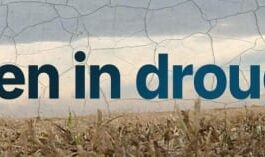
The country’s auditor general will deliver a report today on how well prepared the Public Health Agency of Canada (PHAC) was to respond to the COVID-19 pandemic and whether it was getting timely intelligence on the spread of the virus.
Many in the nation’s intelligence community are hoping that report will serve as a catalyst for real change.
The review will look at, among other things, whether the health agency’s early warning system — the Global Public Health Intelligence Network (GPHIN) — provided accurate and timely reports after the novel coronavirus emerged in Wuhan, China in late 2019.
The auditor general will look also at whether PHAC and the Canada Border Services Agency (CBSA) effectively implemented and enforced border control and mandatory quarantine measures after the pandemic was declared.
PHAC conducted its own preliminary assessment of the pandemic response last fall. It made only a passing reference to the role of GPHIN, but noted there were problems with deploying health staff to border entry points.
PHAC points to a shortage of staff
PHAC’s internal review cited a shortage of qualified staff, “including specialized resources such as quarantine officers, PPE [Personal Protective Equipment] specialists, nurses, environmental health officers and project managers.”
“The lack of operational capacity affected several areas of the Agency’s COVID-19 response, especially its border presence,” said PHAC’s report.
In fact, most of the self-criticism in PHAC’s report pointed to a shortage of the right kind of staff needed to meet the enormous demands of the pandemic.
That report, compiled last September, said the agency had suffered a brain drain over the years, leaving it with “limited public health expertise, including epidemiologists, psychologists, behavioural scientists and physicians at senior levels.”
Who switched off the alerts?
Following a series of Globe and Mail articles which reported last summer that GPHIN’s alert system was switched off in the run-up to the COVID-19 pandemic, the federal health minister ordered a review of the early warning network.
That assessment, released last weekend, found that bureaucrats didn’t understand the value of the pandemic warning network.
Significantly, the panel of experts who led that review said they were unable to discover who ordered the halt to the alerts and why.
“The panel has not seen any written documentation in respect to the timelines of those changes [to Alerts dissemination], who requested them and why they might have occurred,” said the report.
University of Ottawa intelligence expert Wesley Wark said he was astonished by that finding. Wark has been one of the leading voices calling for better pandemic early warning systems.
With the coronavirus continuing to mutate into new variants, he said, it’s critical for the federal government to come up with a better alert system.
Preparation is half the battle
“What you really want is a system to know what’s coming at you, so that you can have early warning and you are better prepared to do the domestic surveillance when it arrives,” said Wark. “Because you’re probably not going to be able to seal your country off from a global disease outbreak.”
Looking at the gaps in both PHAC’s internal review and the separate internal assessment of the pandemic early warning system’s failures, Wark said he wonders whether the federal government truly appreciates the urgent nature of the threat.
“I fear that people will think reforming the intelligence system that underlies our health security is a matter for later and down the road, when we’ve dealt with all of the pressing problems of COVID-19. That we will learn the lessons later,” he said.
The auditor also reviewed federal COVID emergency benefit programs such as the Canada emergency response benefit (CERB) and the Canada emergency wage subsidy (CEWS) to determine whether the benefits reached people in need and whether the government imposed enough controls to limit abuse.












